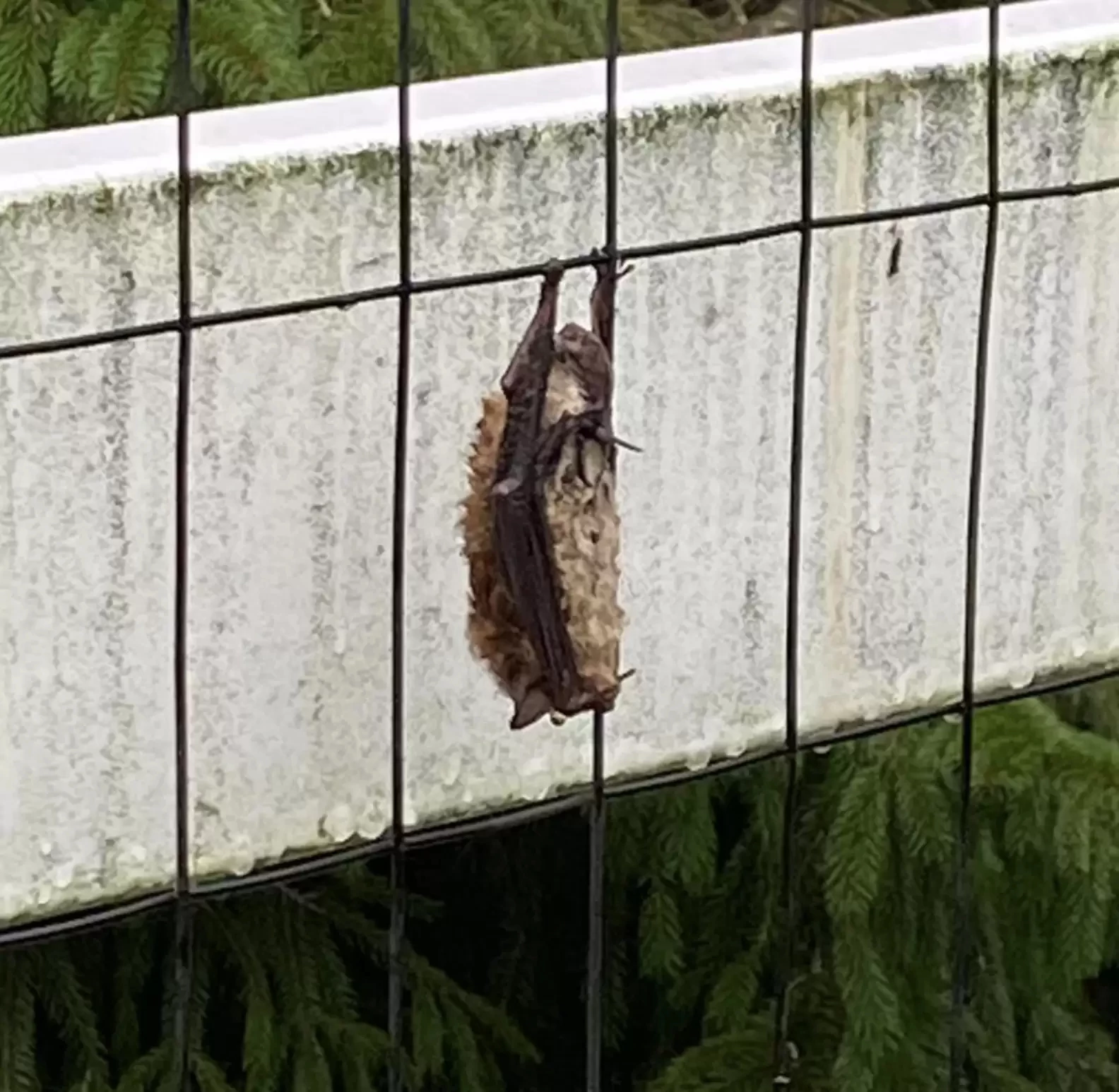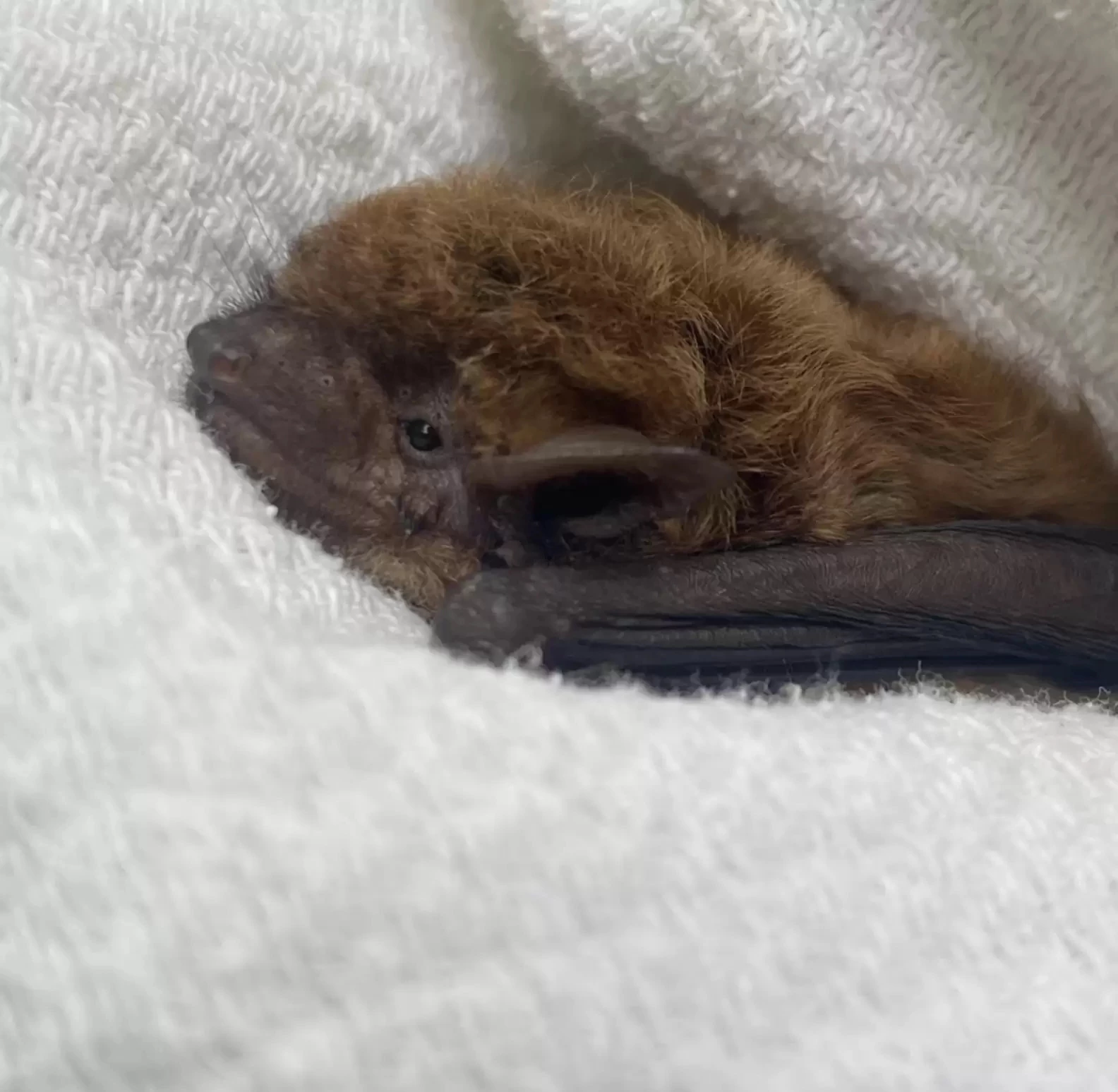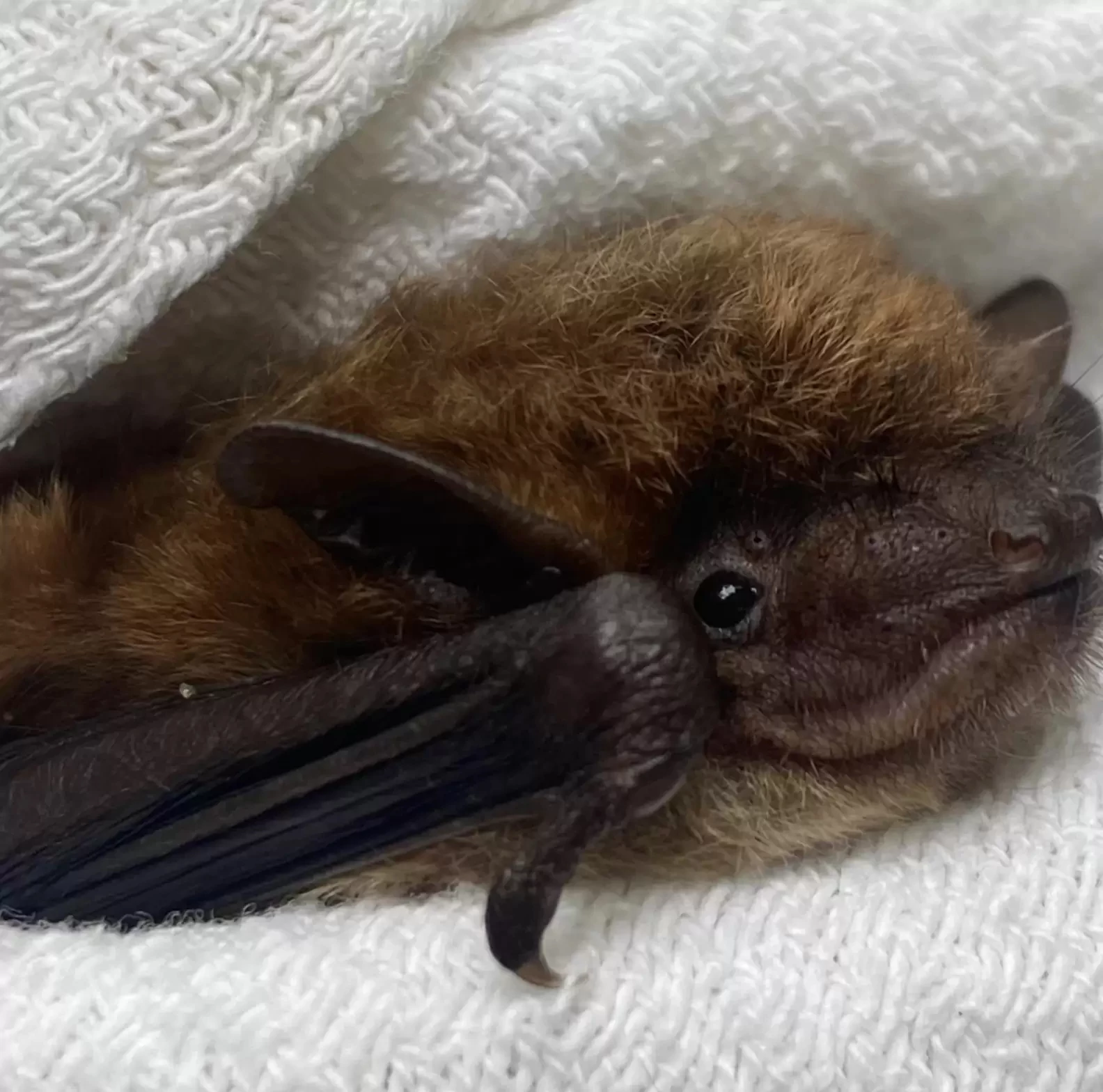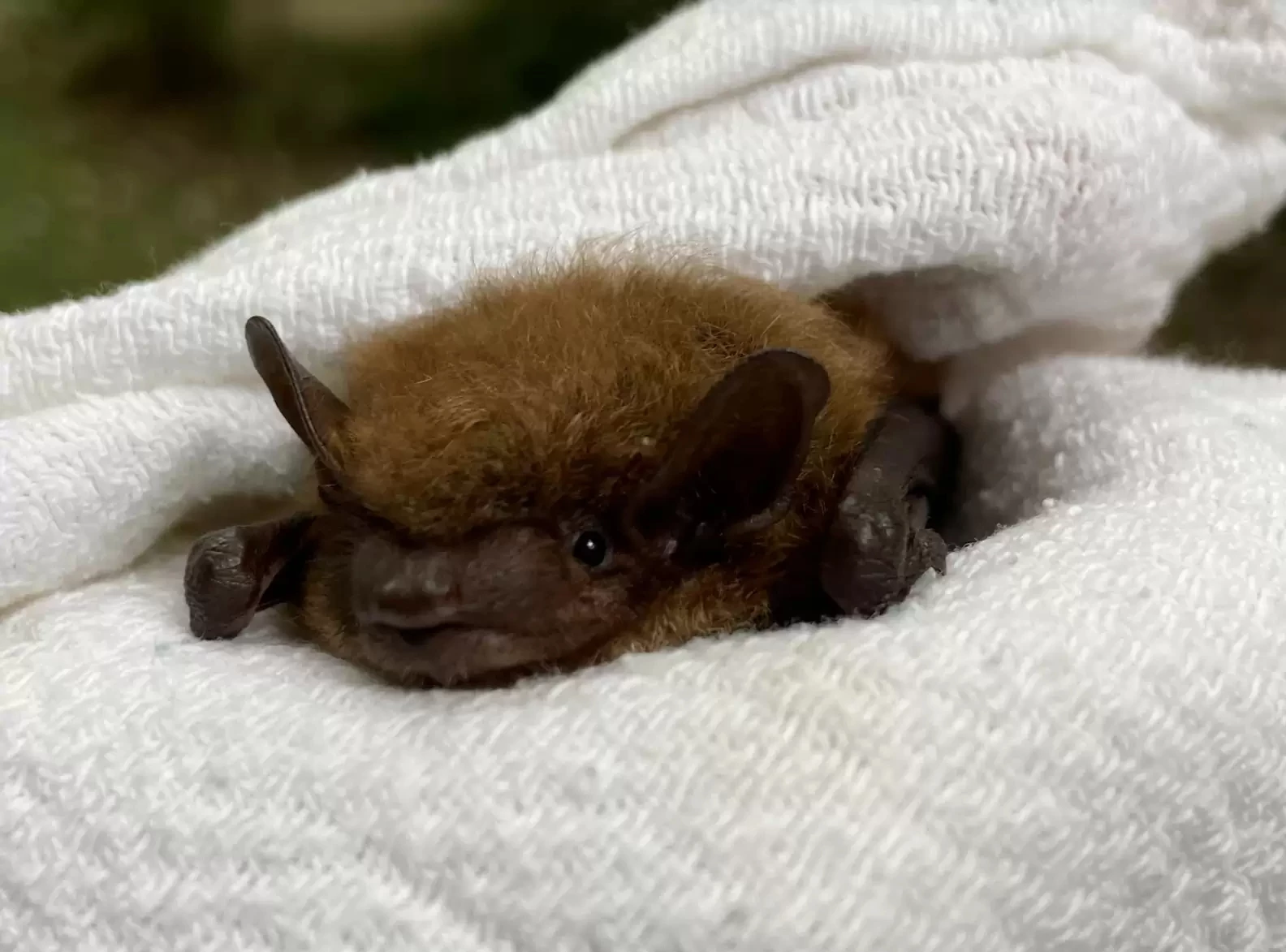Rescue
 Source: Pennsylvania Bat Rescue
Source: Pennsylvania Bat Rescue
Bea Arthur, a frail elderly bat, clung desperately to a slender gray bar, and her fur was weighed down by cold water. In a dire situation, the vulnerable bat awaited rescue.
Fortunately, a compassionate volunteer was en route to offer assistance.Stephanie Stronsick, the founder and executive director of Pennsylvania Bat Rescue, shared the story, recounting how Bea Arthur had been hanging on a metal fence in Gilbertsville, Pennsylvania, for three days.
“The poor old girl was found by the homeowner, who messaged us on Facebook after finding her hanging out in the open, exposed to predators, and soaking wet from the previous night's storm,” she said.
Bea's Quite Shy But Very Sweet
 Source: Pennsylvania Bat Rescue
Source: Pennsylvania Bat Rescue
With utmost care, the rescuer, adorned in gloves and armed with a thick cloth, delicately lifted Bea off the fence and transported her to the rescue’s rehabilitation center.Safe at the rescue, Bea's recovery unfolded, unveiling the resilient spirit beneath her frail exterior.
“She's quite shy but very sweet,” Stronsick shared, providing a glimpse into the gentle soul that lay within the elderly bat.
During the initial assessment, rescuers discovered swelling on Bea's head, leading to temporary neurological complications. Responding promptly, the dedicated staff administered medication to alleviate the bruising, and soon enough, the friendly old girl was getting better.
How Is Bea Now?
 Source: Pennsylvania Bat Rescue
Source: Pennsylvania Bat Rescue
Bea is a brown bat, a species native to North America. According to the U.S. Fish and Wildlife Service, bats, exemplified by Bea, contribute significantly to pest control and serve as essential pollinators for numerous plants.
Currently residing at the rescue, Bea's journey to recovery unfolds day by day. Stephanie Stronsick, the dedicated founder and executive director of Pennsylvania Bat Rescue, shed light on Bea's future plans. The elderly bat will remain at the sanctuary until spring at which point rescuers will assess whether she’s strong enough to be released back into the wild. If Bea requires more time, she is assured a permanent home at the sanctuary.
Thanks to the advocacy of so many animal lovers, Bea is growing stronger by the day. Stronsick extends a call to action, urging anyone who encounters a bat in distress to reach out to a licensed wildlife rehabilitator. That way, more bats like Bea can be granted the second chance they rightfully deserve.
 Source: Pennsylvania Bat Rescue
Source: Pennsylvania Bat Rescue
In conclusion, Bea Arthur's tale echoes the resilience of nature and the boundless capacity for compassion within the human spirit. It invites reflection on the impact each person can have in ensuring the well-being of our fellow inhabitants on this planet.
As we celebrate Bea's growing strength, Stronsick's call to action resonates—urging us to be vigilant, compassionate, and proactive in extending a helping hand to those in distress, ensuring that more beings, like Bea, are granted the second chance they rightfully deserve.